|
An era before film ratings. Ahh...a breath of fresh air. There's not a thing objectionable about this movie, so feel free to watch with Grandma and the kids.
DIRECTORS: Chas F. Reisner and Buster Keaton Chaplin I have down. The Marx Brothers I crush with. Harold Lloyd I have a firm grasp on. Buster Keaton is my weak spot. I never watched him. I don't know how I managed to avoid his movies for so long, but I did. That probably makes me a bad person, so I apologize for that. Although I really want to sit down and watch the rest of his movies in one sitting. Okay, that's a bit extreme. I don't want to pigeonhole this movie because I do believe that Keaton has his own voice from the rest of the era. I can't help but make comparisons to Chaplin's Tramp character. They share many of the same qualities in terms of physical humor and depending on an archetype. But Keaton holds his own narrative and his own commentary. Not really attacking the political landscape as Chaplin does, Keaton instead focuses on the hardships of family. Like many stories, Steamboat Bill Jr. builds its foundation on the Romeo and Juliet trope. The first half of the movie is sweet and romantic and typical. Keaton plays the abandoned son of a steamboat captain. I think I might be most attacked for how many base and low brow comparisons I make, but I can't help but see Jim Varney and the influence this movie makes on the Ernest franchise. But maybe that's what this film blog is all about: the abandonment of snobbery. The trope of estranged and disappointed father plays well here. Back in the day, Steamboat Bill Jr. probably wasn't viewed as some artistic triumph. This is just a fun movie with hilarious physical gags, much like Ernest P. Worrell presented to me. I don't know why the jokes really land significantly better in an old timey setting. Perhaps it is the lack of winking at the camera which gives these kinds of movies an atmosphere of class, but every joke pretty much lands. The second half of the movie is what astonishes me. The budget on this movie must have been astronomical. For an era that mass produced movies on the cheap, the hurricane hitting the town is absolutely impressive. On top of that, I keep thinking that Keaton probably almost really died a dozen times. After finishing Strangers on a Train with the class and discovering that the merry-go-round operator was actually in danger the entire time, there is no doubt in my mind that the stunts pulled were without precaution and probably extremely dangerous. And yet, the stunts kept coming. Keaton almost died on screen and then he came back and did it again. The movie is pretty fantastic. It doesn't get as heart-wrenching as The Kid because the family relationship is played for laughs, but there is something genuinely touching here. Maybe this movie isn't perfect, but it has me straight up Jonesing to watch Sherlock Jr.
0 Comments
The movie is unrated! Whoopee! (The movie talks about the devil, but there is nothing overtly horrifying about the movie.)
DIRECTOR: Carl Theodor Dreyer This might make me a bad film teacher. I don't like Dreyer. I'm sorry! I should be better than that. Hey, I know film snobs who hate Ozu. I like Ozu. I really don't like Dreyer. (I also don't like David Lynch, but you should still forgive me.) There's something just a bit too avant-garde about his style that doesn't resonate with me. It's probably the same reason that I don't get excited about music videos. They look awesome, but I need the narrative to keep me engaged. Vampires are super cool. There was a time about a decade ago that I was super into the concept of vampires. (One of things I wanted as an ability? Vampire face. Not a joke. That and Doc Ock arms.) Then Twilight showed up and ruined the party for everybody. I got off the vampire train, but still have an appreciation for the concept. In many ways, that's what makes Vampyr accessible for me. One thing we have to establish early on is that Dreyer is a master at imagery. His greatest strength across his oeuvre is the ability to create mood from stylistic images. The opening twenty minutes establish this extremely well. Using a simple shadow trick is still effective today as it was nearly a century ago. The mood is creepy and he really drives that point home throughout. However, like Dreyer's other films, he cares less about the cohesive plot as opposed to what looks awesome. I genuinely believe that the movie is separated into three acts. The opening act establishes the tone. Throwing disturbing supernatural feats at the screen, the joyful aspect of me grasped onto the creepiness factor. However, like most of the supernatural tales of this era, the middle of the film tries establishing its own rules. Through the use of book pages, Dreyer tells the rules of his vampires through page-after-page of reading. It somewhat feels like the middle of the movie is a guided research paper, which doesn't exactly draw me in. Dreyer, unfortunately, decides to insert what little plot he has for the story here. Like the Universal Dracula, the story surrounds the slow transformation of a human into vampire. The problem is that there is no real relationship between the characters. I do throw myself under the bus here. I can't break out of my need for narrative structure and that's not what Dreyer is shooting for. Yes, the imagery is amazing. The third act is really the evidence for that. Almost any still from that last third is gorgeous. But the story also seems to disappear. Once the research part of the story disappears, so does any version of the story. The extremely effective terror of the man stuck inside his own grave is awesome, but I have little idea of what is going on here. Perhaps that's my fault because I can't shut my brain off, but I know that I can't be the only one who needs some clear logical explanation for this. I want to like Dreyer. I just can't. This might be my favorite Dreyer, but that's not selling much. A PG MOVIE! YAY! I think I may have one of each rating on this page minus NC-17. But am I really going to review an NC-17 film? Probs not. My wife would get mad.
DIRECTOR: Ben Stiller I'm breaking my own rules. Actually, I'm probably breaking Greg's rules. Greg was a guy I worked with at Thomas Video before I became a teacher. He takes the idea of splitting a movie into separate viewings because it breaks up the flow. He's probably right. He probably got that idea off of David Lynch, who yelled at the Internet for watching a movie on a phone. That part I agree with, but ignore the rules. I also drive five miles over the speed limit. What I'm saying is that I watched this movie very broken up. I'm a bad person. Ben Stiller has some explaining to do. In many ways, I applaud his approach to this movie. He is aware of his reputation in Hollywood. I have always thought of Ben Stiller as a genius and I've always waited for him to scream it to the world. He always peeks his head in and really shows how smart he is. Watching The Ben Stiller Show or forcibly recommending The Cable Guy to everyone I know, I needed people to find out how he's not just a goofy funny man. The guy has a some serious chops. But my major criticism is how big he's become. That sounds super-hipster, but becoming a blockbuster sensation has really ruined him. I am prefacing everything I'm saying because this movie has everything needed to become a genuine classic. But he had to ruin it with the worst use of product placement I have ever seen. Product placement is simply a part of Hollywood. I understand that people need to supplement the budget of a film somehow. But there is a wide gap between someone drinking a Heineken in the background of a James Bond movie and the movie surrounding a product. Before this movie, the greatest perpetrators of product placement were CastAway and You've Got Mail. The Secret Life of Walter Mitty takes the grand prize. I can say that every five minutes, I had to hear a comment from a character dropping a brand name somewhere in the story. Walter Mitty cannot function without it. I don't even mind the Life Magazine aspect. That at least is culturally relevant. It's the Kentucky Fried Chicken. It's the Papa Johns. It's the scene at CINNABON WHERE AN EHARMONY REP TELLS THE PROTAGONIST HOW GOOD CINNABON IS! Why? You created something beautiful and then slapped logos all over it. You were so close. I can't stress how much product placement ruined this movie, but looking at the other elements, everything is near perfect. In terms of formalist film style, the movie is gorgeous and plays with non-diagetic elements constantly. When it works, it really works. Impressively, as amazing as the movie looks, it never crosses the line of pretension. Stiller still makes a funny movie when it needs to be funny. He allows the drama to be subtle, with the exception of Adam Scott's character. The cinematography is absolutely goregous, really pushing the limits of high def filming. There is no reason for this movie to be so weak outside of the fact that movie paid for everything with product placement. (Note: Googling this movie revealed that this movie won the award for Worst Product Placement. Apparently, Walter Mitty could not have worked at Papa John's as a kid because Papa John's didn't exist when he was a kid.) In talking about a remake of a classic, I have to say that this movie may have proven that some movies are allowed to have remakes. I was never a fan of the original Walter Mitty. I honestly think that movie might be made for Danny Kaye fans alone. Not to say I dislike Danny Kaye, but I'm not part of the fan club so the movie isn't as amazing as some make it out to be. But both movies need a sense of vulnerability. My film snobbery desperately fights against emotional manipulation, but that might be a poor response. The movie moves and tugs at the heart strings and maybe all of the moments aren't truly earned. But going into the movie with an attitude that I'm allowed to relax? That's probably what this movie needs. Treat this like Forrest Gump. It's manipulative, but that's okay. No rating! Have you seen a film noir detective story? Those are your expectations. View accordingly.
DIRECTOR: Fritz Lang I'm an idiot. Teaching film, I feel like I should be on top of everything. I have the same complex when it comes to teaching English. I should read everything. I know it is impossible. There are just not enough hours in the day. When our film textbook decided to analyze a scene from The Big Heat, I threw it on the Netflix queue so I could be prepared for my class. I watched it. Enjoyed it. Came back to talk about it. The problem lies with the fact that I had already seen this movie and didn't realize it until I went through my film checklist. Yup. I had forgotten. I 60% blame myself. I 30% blame film noir titles for being super generic. I 10% blame the movie itself. After teaching M, I tried beefing up on my Fritz Lang again. I know that I've seen most of his oeuvre, but this one escaped me. The reason why is that it feels remarkably American. We studied German Expressionism and film noir was the natural evolution to Expressionism. The use of light and shadow to make the image come to life is center at both Expressionism and film noir. But the tone didn't feel anything like Lang's other work. Looking at both Metropolis and M, there is a certain surreal quality to both works that is missing here. In fact, this movie is as straightforward as it gets. The shadows are used exclusively to influence the mood, but doesn't affect Lang's attitude much. This is a world of shadow because that is what the genre is built around. In many ways, this film is the progenitor to the revenge flick. It plays tones of Lethal Weapon and The Punisher, but with the cop core at the center. Lang's greatest success is not in his intricate murder mystery, but with the emotional core that he places in Glenn Ford's Bannion. I'm slightly ashamed that I agree Lang's choices to fridge Bannion's wife. Perhaps it is acceptable here to create a woman character simply to motivate the male protagonist because it hasn't become completely cliche yet. But Lang presents Jocelyn Brando as the perfect wife in the perfect marriage for the sheer sake of tearing the world down. I am treading on dangerous ground talking about fridging a character. I weirdly come down on both sides of the argument about the purpose of fridging. When looking at gender studies, there is a valid perspective on the role of women in film. The only time women characters are given any depth in this era is to create a sense of relatablilty for the male protagonist. Otherwise, many of the women are presented as stereotypes. But I also understand that this is another time. Family is an important motivator and Bannion's reactions are validated through the loss of a truly loved character. The only weak choice on this whole front is the fairly removed reaction of the child. Bannion has one powerful line about lying to his daughter about the whereabouts of her mother, but that's the entirety of the emotional fallout from a dark moment that could have been explored deeper. While I care little about the actual mystery involved, although the presentation is fantastic, the real strength of this movie can be found in Lee Marvin and Gloria Grahame. Lee Marvin always impresses, but Gloria Grahame stands out at riding the line between caricature and deep. I spent much of the movie wondering where I had seen her before. (Unfortunately, it is only moments ago that I realized it was from this very movie.) She is mesmerizing while chewing up the scenery. Her motivations are confusing but explainable. Placing her in the proximity of Glenn Ford creates an interesting examination between the extroverted and the afraid. There's a lot going on with her performance. Perhaps her acting choices draw attention, but her presence in many ways makes this movie more relevant than those other film noirs. There is also the problem with the fact that I forgot that I had seen this movie, even after watching the whole movie. That bothers me. Yes, film noir titles are wildly generic, but this is a movie that has truly amazing moments. I want to discuss the final sequence, but that might give away too much. Also, my textbook goes moment-by-moment of that scene and that's not the purpose of this blog. So what made this movie forgotten? I wish I knew. The movie hits all of the right beats, but the mystery at its center is perhaps a bit flimsy. The imagery and the characters drive the movie, but I found myself annoyed by the central conflict. I guess it takes a truly mindblowing mystery to grab my attention. But like I said, that's probably more on me. TV-MA probably just for language and innuendo. Let's establish, streaming video original content makes movie ratings look like TV ratings.
I want to preface that I kind of liked the movie. I already know me and from my pre-planning, I can tell that this review is going to go negative. As a complete worked, I liked it. From a contextual perspective, this movie has a lot to be desired. Mascots is in a small category of film. Writer and director Christopher Guest has his own little fandom of which I am part. This is Spinal Tap and Waiting for Guffman might be some of the greatest comedies ever. Guffman alone I have probably seen perhaps a dozen times over my lifetime. It is part of the ritual of having anything to do with a theatre degree or having been part of any community theatre production. (I can already hear the collective Internet's eyes rolling as they have now placed me in an even nerdier demographic. You know, assuming that anyone ever read this blog.) There is something absolutely brilliant about the the improvised format that makes these kinds of movies so compelling. Mascots, like Guest's other films, features many of his company (I'm sorry!) from his other works along with some welcome additions. The problems is... ...the concept is getting depressing. I've seen this movie before from Guest. It very much feels like a reskinning of Best in Show, A Mighty Wind, and For Your Consideration. He has told the story of the subculture's big competition / awards night so many times that I just can't fall in love with the characters again. Many of the jokes are even retellings of the old jokes from other films. I actually IMDB'ed Parker Posey's character to find out if her Alvin the Aardvark was meant to be Libby Mae Brown. I will always love Fred Willard, but he's just playing the same detached from reality adorable racist blowhard that he has over and over. This time they are wearing brightly colored cartoon characters for clothing, but that just replaced a guitar or a poodle. I kind of feel like Christopher Guest is either creatively dying or just appeasing his horde of fans. I love him, but I want something subversive and angry. I really liked the jokes, but that's because it felt like a greatest hits album rather than original content. It is perhaps why I gravitated to the new actors in the group. I loved Chris O'Dowd, but that's just because I didn't have the heart to watch Guest's Family Tree TV show on HBO. It was at least something new. But if we can establish that this movie is fan service, it in many ways is the best fan service possible. I have a hard time reading his personality through his works. I remember when For Your Consideration came out, people were claiming it was a commentary on his disillusionment from the Hollywood system. Reports were screaming that Guest was done with his mockumentaries. The movie, in this light, seemed bitter and angry. Mascots, however, never really attacks anything. If this is his Greatest Hits album, he knew that he had to include Corky St. Clair. This is the moment that makes me excited and confused. My mind even in this moment harkens back a This movie is all of the R. It takes everyone else's R and make's it PG. It's that R.
No, I don't just watch scary movies. It's October. It's my pass. I recently read a very clickbaity article slamming this movie. The article said "The 15 Worst Movies of All Time." Knowing I was falling behind on my reviews and that I didn't feel like writing anything else, I decided to view this awful clickbait and, sure enough, I left disappointed. Fourteen of the movies (that I had to click umpteen times for) were widely panned films that most of us hated. # 1 with a bullet was The Witch. I just got mad. I don't know why clickbait gets me so riled up, but this entire article was just written for the sake of lumping in a movie like The Witch with it. So any critical stuff I do from here on out, I first feel it necessary to punch that author in his digital stomach and say, "Shame on you. You don't have to like it, but just come forth with it." Okay, enough ranting. This was the other half of the double-feature with Mr. C and Mr. Henson. Next time you wonder why your paper isn't graded in a reasonable amount of time, it's because your teachers are watching demonic films in Mr. H's garage. There's a certain category of film that always makes me nervous to watch. It's the movie that I know is bad for me and is meant just to prove that I'm a boss. It's the same instinct in me that orders food slightly spicier than my comfort range just so I can say that I can say I like hot food. The Witch definitely falls into this category. The last movie that I went into with this level of trepidation was the remake of The Evil Dead. At the end of the day, I can say that I'll probably not watch this movie again because it is so intense, but there is definitely quality in the film. The major complaints I read about this movie was the fact that it is slow. As a grown man who has a mildly solid attention span, I can say that I like slow. This movie actually may be the perfect pacing for my taste in horror movies. Not unlike Rosemary's Baby, the pacing plays on the concept that we know something is awful surrounding this family and that they are going to get their come-uppins. (Sure, they didn't do anything wrong except for agreeing to move away from the town.) The movie delivers a pretty disturbing scene early on and that really sets the tone for the rest of the movie. It plays on the idea of innocent things being transformed into the truly grotesque. I'm never a fan of the torture or gore fests, but there is something about movies with a demonic overtone that the grotesque becomes something almost necessary. Yes, my gag reflex was put to the test at times, but I weirdly rarely saw it as gratuitous. The movie hinges on performances. A small cast, every single performance creates a tapestry of intrigue and I loved every character choice. Admittedly, the sound mix is not my favorite. As a guy with kids who was playing this outdoors in a suburban neighborhood (I never said I was a good person), I didn't love that the dialogue was always at a whisper and the discordant strings were at Van Halen concert levels. Is it effective for scares? Sure. Is it appreciated? No. I'm 33. I don't need loud. The choices that the screenwriter and the directors made were perhaps the most interesting. For a movie called The Witch, we don't get a lot of info about her. She is a present force of nature in this film. It's the knowledge that the danger is there and with an intent to destroy in horrific ways that drives the movie. I have a theory about the name of the film in relation to one of the characters, but that gets full on into spoiler territory and I know this movie is off of a lot of radars. But in many ways, this is analyzing the destruction of faith and the family. Characters are easily unlikable for almost no reasons, which in a weird way mimics life. The imagery supports the bleak tone and makes any use of the supernatural stark and disturbing. The movie doesn't shy away from the taboo, but rather uses it as a canvass for the characters to interact. To put this movie on a worst of all time list is a crime. I can see it being made for a very select audience. The horror crowd typically doesn't like the slow pace. The anti-horror crowd would be appalled by the gore. Honest to Pete, this might be a movie for the gutsy film critic alone, which makes this review sound very snooty. R. The "R" stands for both "Restricted Audiences" and "WeiRd movie."
I always hate when someone claims, "Man that director must have been on drugs." It seems so flippant. It minimizes the amount of creativity that someone must have had to make a concept that hasn't been told before. Unfortunately, I genuinely think that John Carpenter may have been on something for this movie because between the bizarre and heady content, the structure of this movie is just baffling. John Carpenter was crushing the '80s. The man knew how to make entertaining horror movies. Honest-to-Pete, I could simply watch John Carpenter's '80s canon for the entirety of October and consider myself a happy man. The movies are genuinely terrifying and, not wholly unlike Hitchcock, he knew how to play up dramatic tension. Between Halloween and The Thing, he has made perhaps two of my top five scary movies. They Live, in some ways, is his swan song to his great period. The odd part is that the movie is not great, but it is definitely compelling. To explain this plot, I might come across as a bit of a mad man. The premise surrounds that creatures, which are implied to be aliens but never confirmed as such, exist all around us. They have made the human race dull and submissive through the use of subliminal messaging and have placed millions of sleeper agents disguised as humans in the world all around us. *So far, I'm doing a better job of explaining the movie than Carpenter does* It takes a pair of magic (?) sunglasses to see the truth of the world around us. After a drifter finds these glasses, he starts murdering every single alien (?) around him and trying to take down these guys with the help of human sleeper cells around the world. This movie was Mr. Henson's baby. Mr. C, Mr. Henson, and I watched it with his recommendation. I'm glad I've seen it. This movie exists in a very specific classification of film that is a hard target to hit. It is crazy enough to be openly and encouragingly mocked, but watchable enough to get through it and come out the other end a good time. There is also something wildly unique about this movie that I can't compare to any other movie I have ever seen. Carpenter is full-on satirizing society through his thinly veiled allegory. This is a movie with purpose and intent. Carpenter, I can simply imagine, had an idea about what was wrong with society and how he wanted to change it. He invested all of his time into making spectacular mat paintings of the subliminal world. Then he got bored and added a ton of punching, guns, and staredowns. And that's where this movie falls apart. I actually saw a clip from this movie years ago when the Internet meme came out. You may have seen "The Longest Fight Scene Ever". That scene comes from They Live. The protagonist, played by wrestler (yup) Rowdy Roddy Piper just going by Roddy Piper in this one, gets into a Family Guy style fight with Keith David over putting on a pair of sunglasses. I am somewhat convinced that Carpenter was trying to pad out his runtime or giving Roddy Piper wrestling fans a hint of gratuitous violence that they paid their admission to see. But the fight scene is really representative of everything bananas about this movie. Keith David is fighting Piper over the fact that he refuses to try on sunglasses. The entire movie is cramped with moments of "why is that character acting completely nuts?" moments. Piper goes from being a very sedate drifter to a quip spouting murder machine any time the movie gets a little slow. For the They Live apologists (whom I know are reading), I understand that there is a throwaway line about the sunglasses changing behavior, but no one else who tries on the glasses becomes Bruce Campbell's fever dream. It's just really weird. There is so much here, but I'm ashamed that I have to go into spoiler territory. Anything I say could be instantly inferred by watching this movie. The structure is wacky. The allegory is anything but subtle. But at the end of the day, it's a good time to watch John Carpenter slowly go insane. Another documentary. Another TV-MA. I understand this one. You full on see unaltered crime scene photos. Not only should students be nervous about watching it, but there is something very haunting about watching death.
I should start off by putting a disclaimer to the above statement. In no way is the footage exploitative. This is a documentary about a real crime and a fundamental aspect to the crime was the amount of violence incurred upon the victim. But there is a line in the sand between Hollywood movie violence and real, nitty-gritty crime scene footage. I don't want to pigeonhole this movie for a few seconds of footage because I do believe the movie is worth the watch. When Netflix's Making a Murderer came out, my wife and I were riveted. We joined the national discussion about police corruption, the rights of the prisoner, whether justice could be served and so on. Perhaps because we had recommended the show so often, Netflix decided to return the favor and heavily recommended Amanda Knox to us. This was a little bit of a different situation. Like the newest season of the Serial podcast, we had been aware of Amanda Knox's story from simply existing during the time period. We had a frame of reference for what was going on and wanted to know something more about this story. Probably, the worst side of me wanted to judge someone for doing something evil, be it Knox herself or like Making a Murderer, we wanted to judge the police. Yes, this sick and poisoned side of me got what it wanted, but I did walk away with more. In many ways, this documentary covers the same themes as Ace in the Hole. For those unaware of Billy Wilder's hidden gem, the story surrounds sensationalism surrounding a real world problem in the hopes that headlines will draw attention to the reporters and news outlets rather than the story itself. I don't know if Nick Pisa, the journalist, was taken out of context or what, but the story almost surrounds his blind zeal and his desperation for success. While much of the documentary lays out the order of the events, the documentarians succeed most at explaining why things got so out of hand. The reason being is apparently Nick Pisa...or those of his ilk. Desperate for headlines and catchy nicknames, the press had swallowed up every word of a murder-mystery-novel obsessed detective who had mentally found the most interesting version of events in his head. Yes, there is quite a bit of blame to be placed on chief prosecutor Giuliano Mignini. His obsession with the darker side of things and his need to be a hero under an intense desire for justice from the community blinded an already ignorant individual. (Note: I'd like to point out an odd choice by the directors here. They kept stressing that many of his faults may have had origins in his devout Catholicism and I'm not sure what connects the two. Is the assumption that it takes a willfully ignorant person to become a Catholic? Not a fan.) But every time we see Mignini, he is immediately buried by the obsession of journalists like Nick Pisa. Pisa admits in the documentary to yellow journalism, actively taking elements of Knox's statements out of context. Placing doubt on clearly innocent phrases like "Foxy Knoxy" as a nom de plume for a murderer was absurd. Admittedly, I'm getting most of my inside knowledge from this documentary which clearly posits that Knox is innocent, but there's something slimy about the whole thing. There's so much here and there is so much that is criminal. Yes, Amanda Knox is weird, but not unreasonably so. Some of her choices were odd. The police aren't as blatantly trying to pin stuff on her like Brendan Dassey, but there are echoes of intent here make these cops spiritual siblings. I don't know what it is about this being the era of police corruption, but there is something fascinating about the idea that someone should be considered innocent until declared guilty. But echoing the end of Chinatown, this is Italy. This movie, as previously stated, is rated R. Don't worry. You don't have to see it.
Let's give a little bit of background to why I actually watched this movie. This was lauded as one of those underground greats. It's October and I want to watch a horror movie that doesn't exactly, pardon the pun, swim in the same circles. I think it was io9 that really sold this as the greatest man v. nature horror movie of the past few years. That excited me. For some reason, I shut off the part of my brain that reminded me that io9 hates a lot of the stuff I like and likes a lot of the stuff I hate. All I can remember is that io9 drew my attention to Pacific Rim and now I have rose-colored glasses. I honestly thought that this was going to be the indie-thinker shark movie. Conceptually, it is pretty cool. A woman can't leave a rock and swim to shore because a shark is terrorizing her. Cool. It is just...there is so much pragmatically wrong with this movie. I am going to break down the major flaw with this movie. It may seem nitpicky, but my brain can't wrap my head around it. Perhaps it is a lack of suspension of disbelief, but this is pretty egregious. The film starts off like most of the genre, establishing setting (a remote beach) and a character's basic background (med student who is sad). Why is she going to die? Because no one knows where she is. Why can she MacGuyver herself out of any situation? Because she's a med student. LET'S SURF! I don't know what it is about trying to halfheartedly show some extreme sports in a movie, but it really just upsets both the pro-sports and the anti-sports audiences. The inciting incident, however, holds promise. Blake Lively's Nancy, the sad med student surfer, encounters a dead whale at sea. Gross, but she's fascinated by it because the audience is intrigued. It is only now that the shark decides to attack (see above photo). She swims for the dead whale and climbs aboard, which would have made an even better movie had she just had to survive aboard a dead whale the entire time. Think about it. Dead whale both rotting away and being picked apart by scavengers until she is too tired to swim for land? Whale being swept away to the ocean? There's so much potential here. DEAD WHALE BOAT! (I just thought of that. You're welcome, Hollywood.) But this is where the movie falls off the rails. The shark is acting like a serial killer here. We can all suspend disbelief when it comes to basic shark attacks. The statistic has been floating around (pun intended) about how sharks don't like attacking humans. This shark goes out of his way to kill Blake Lively. The point is that it ignores a huge whale for a tiny meal. The whale was only included for the gross out moment of Lively's hand plunging through the beast. It's a shame, because the tone of the rest of the movie mirrors this. It is a movie full of opportunity to examine the human condition, yet settles for a third rate action horror movie. Lively has way too much knowledge. The battle becomes stupid at one point. There's an injured bird that she chooses not to eat for sustenance. It's silly and stupid and the worst part...it is all about wasted potential. I don't love Monday morning quarterbacks, but when I'm aware of what would fix a movie and am convinced of it, I get weirdly depressed. All of the elements needed to make a good movie are here and it weirdly goes the way of SyFy's shark related content. The effects may be better and it may have a better color palette, but there's not much going on here. I just looked at my list of movies to review. Seven more "R" or "TV-MA" movies in a row. I might be a bad person.
If you don't know Shane Black, look him up. In some ways, this review is more of a love letter to Shane Black than a specific analysis of The Nice Guys (which I want to call The Good Guys --the Colin Hanks / Bradley Whitford TV show with the same aesthetic.) Shane Black, writer and director, has a very specific tone. They are fun mystery action movies set at Christmas. His most famous movies are the Lethal Weapon franchise and Iron Man 3. He also has his characters drop the F-Bomb a lot. LA is a character. There. You now get the idea. In some ways, these movies are the film snob's bro movies. Shane Black's films are always excused from the typical Hollywood blockbuster. Because I am a film snob, I hang out with other film snobs. For the most part, these movies not only get a pass from the film snob, but also are lauded as the best action movies of whatever decade they are released. I can say that about Kiss Kiss Bang Bang very easily. I don't know necessarily what makes these movies weirdly special, but they somehow break out of their genre's boundaries and provide something special for the viewer. In a recent review, I discussed the responsibility of art. I don't think that Black is providing commentary on society with movies like The Nice Guys, but he does something close. He makes a fun movie that he is genuinely passionate about. As an English teacher / nerd, the passion project goes a long way for me. I can't speak for all film snobs, but this is what attracts me to these movies: the passion. Maybe other film snobs just like these movies because they kind of fall under the radar. Who knows? People love having their secret little treasures. The Nice Guys is exactly what I thought it was. It is a fun '70s buddy detective mystery. Like most of Black's relationships, the best friendships are founded by a disdain for the other. Crowe and Gosling bicker and fight and fight and bicker. The joy can be found in the relationship along with the mystery itself. The mystery here is good, but not great. I can't help but constantly comparing it to Kiss Kiss Bang Bang. That might be his best movie and this, tonally, is the same film. The animosity between the incompetent and the overly competent, the use of LA self-involvement...Christmas, I guess? It is all there and it was great to revisit this tonal world. But if you are writing a murder mystery, there is a degree of plausibility that is completely done for at one point in this movie. But at a certain point, I just said "Who cares?" and watched the movie for the joy that this movie provides. Gosling is funnier than I have ever seen him. Crowe has just settled into his typecasting tough guy role. Adding a kid weirdly makes sense. The movie is definitely worth a watch. In many ways, I recommend watching The Nice Guys before watching Kiss Kiss Bang Bang. That's your order actually. If you want to get into this world, double feature these bad boys over two days, starting with The Nice Guys. |
Film is great. It can challenge us. It can entertain us. It can puzzle us. It can awaken us.
AuthorMr. H has watched an upsetting amount of movies. They bring him a level of joy that few things have achieved. Archives
July 2024
Categories |

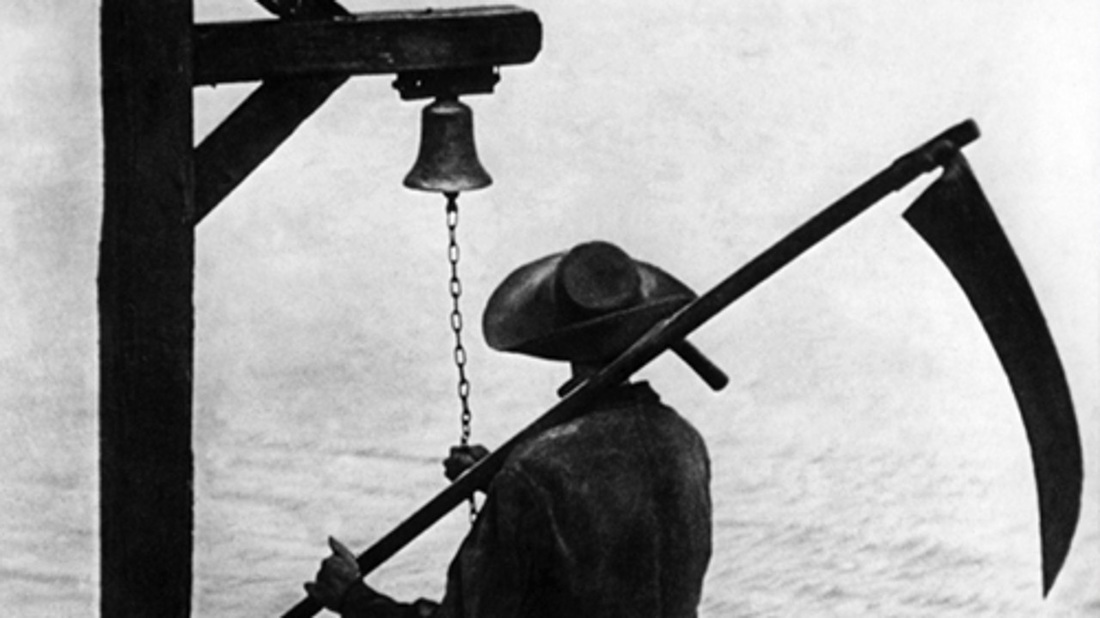
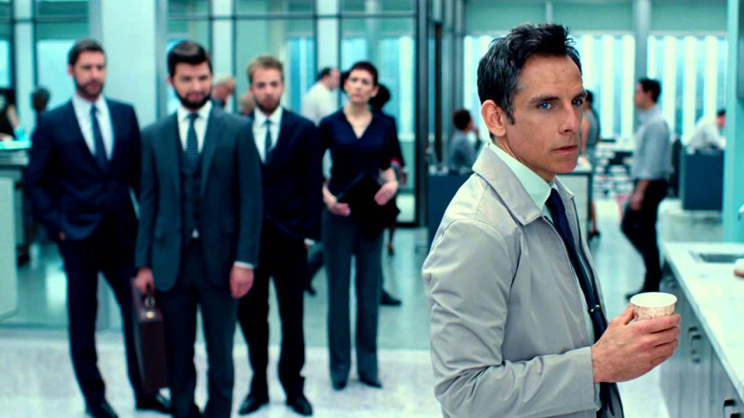
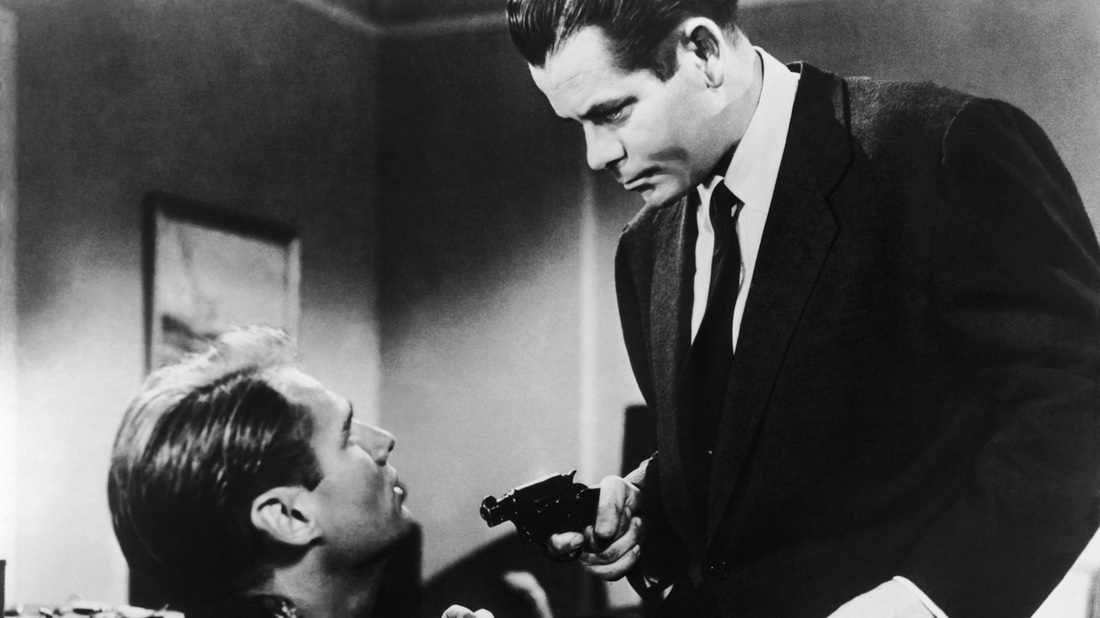
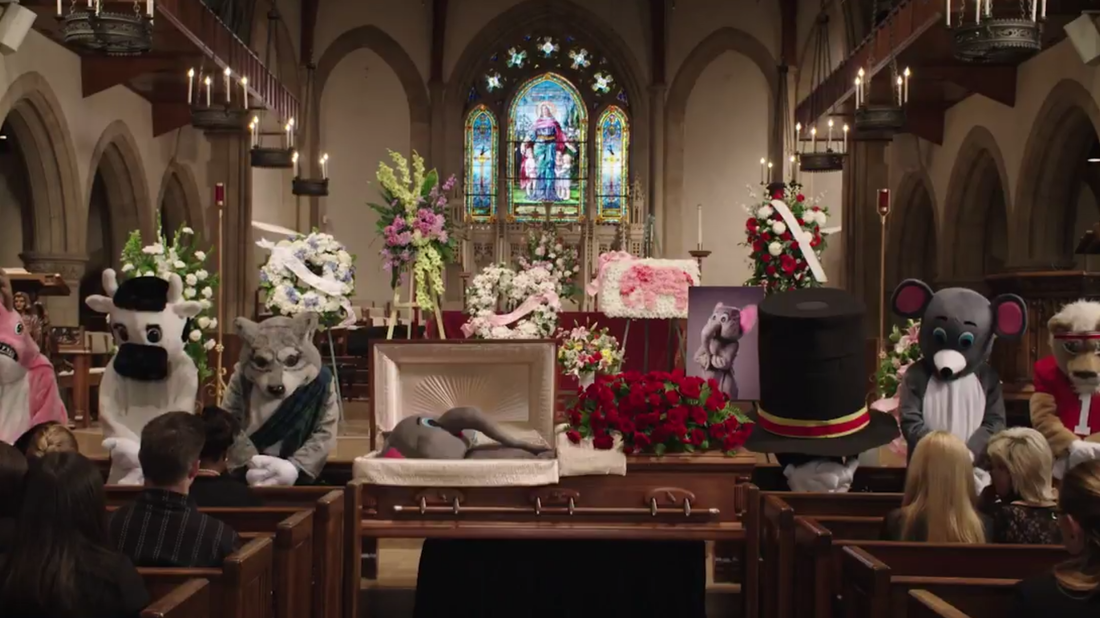
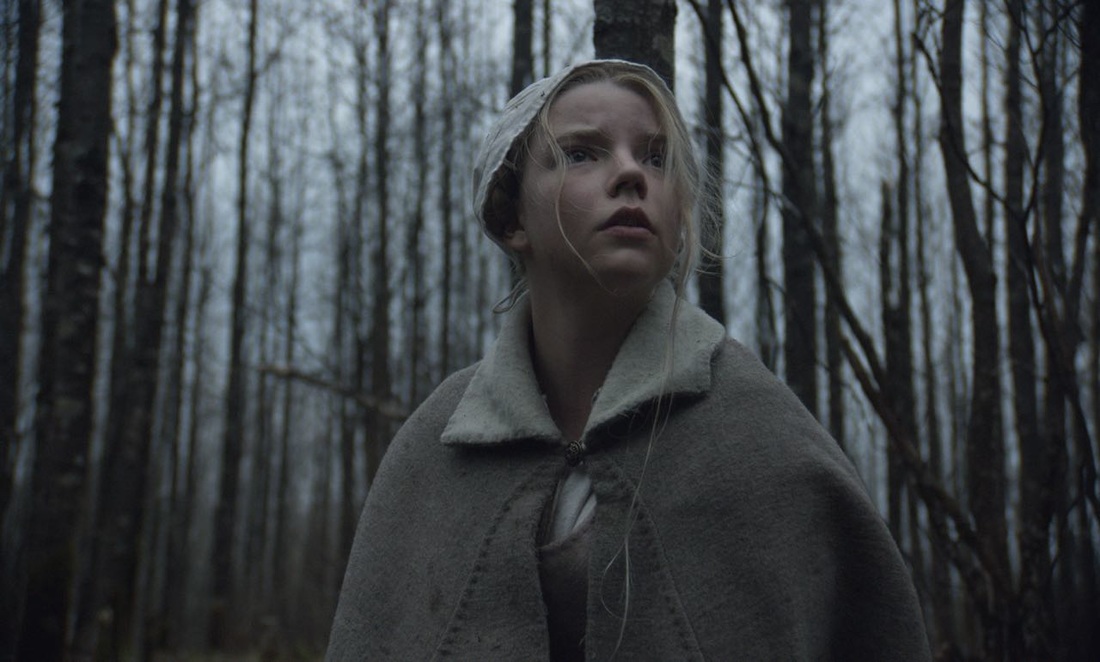
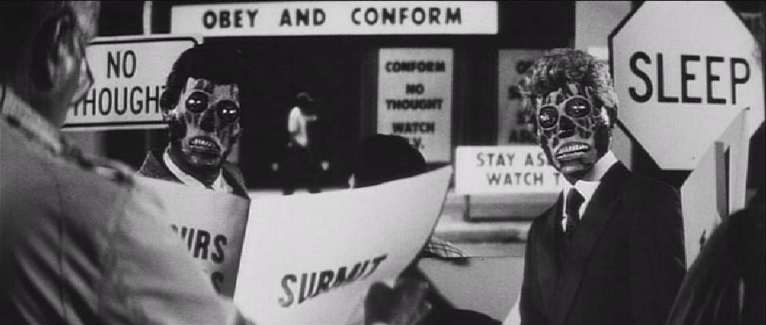

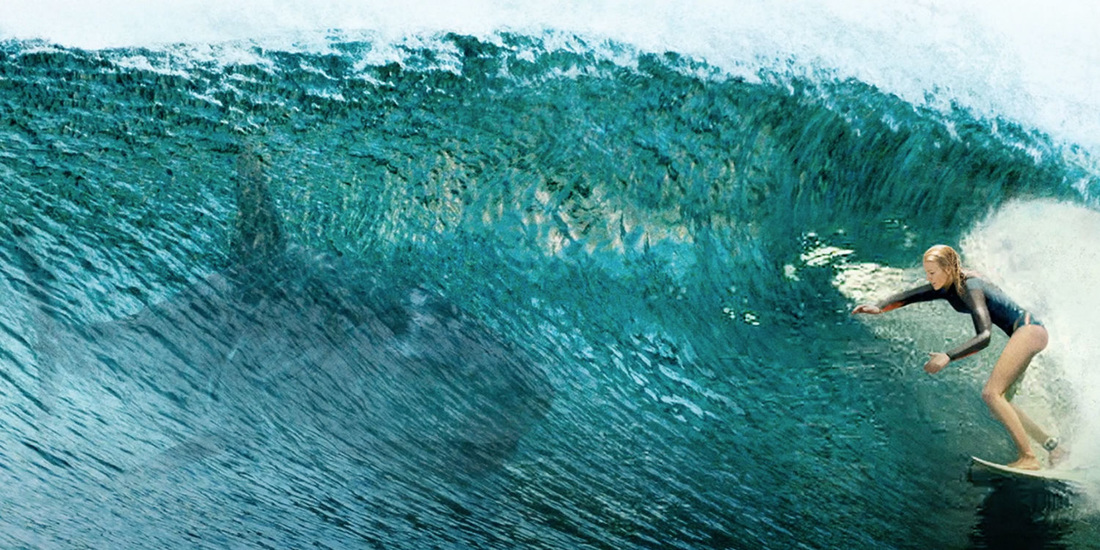
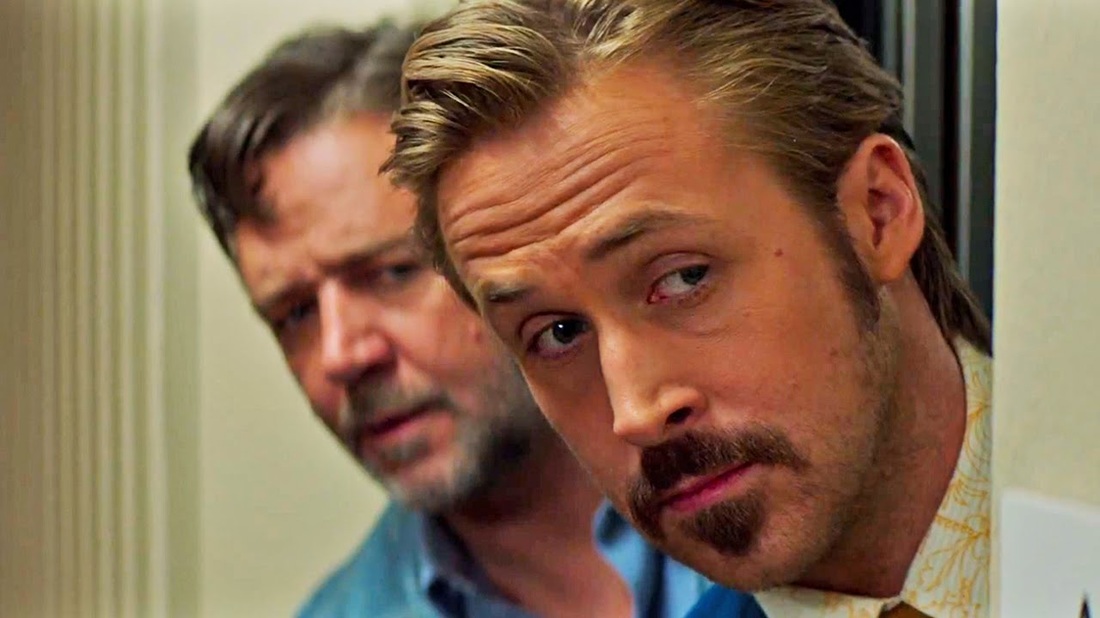
 RSS Feed
RSS Feed